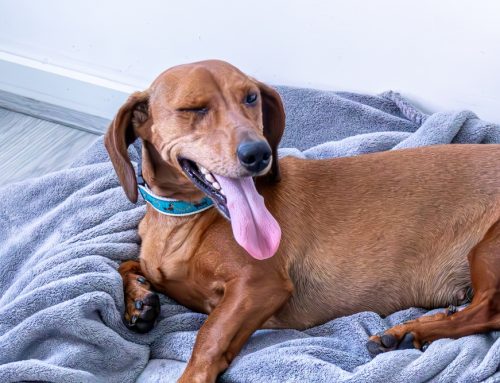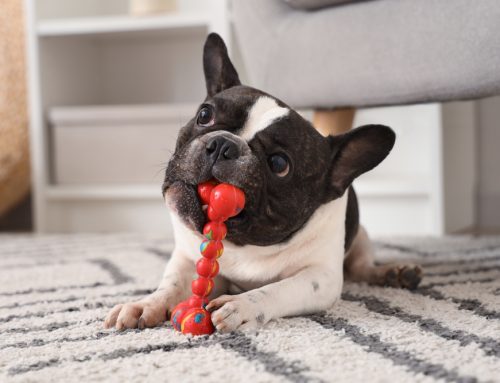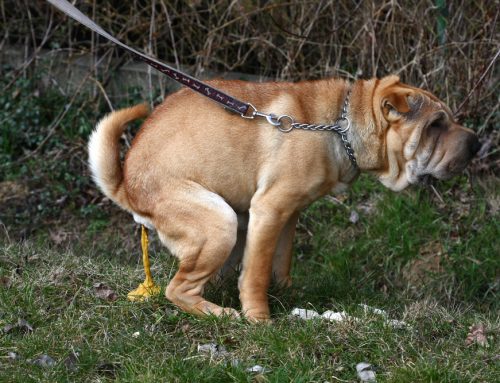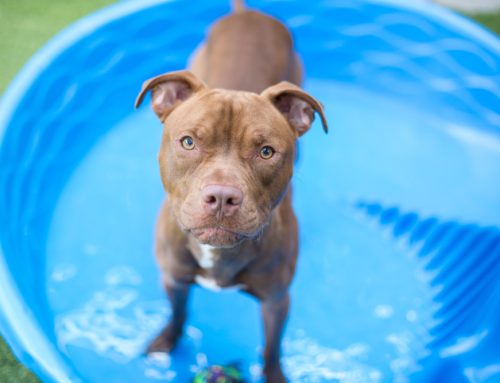There are so many wonderful canine behavioral traits that make the less desirable ones easier to tolerate. We’re talking about those long soulful gazes into your eyes, the ability to catch a Frisbee in midair, and the precise way they anticipate events, like meals or getting to ride in the car. Are these characteristics positive enough to overshadow any discipline issues? Of course they are! But that doesn’t mean you should live with a destructive dog. If your dog chews on anything they can get their jaws around, it’s time to redirect their energy.
I Love You, But…
Dogs truly want to please their owners, but they still have to answer their basic instincts. Some pups love to dig, others enjoy barking a lot. The dogs that chew on household objects, such as shoes, furniture, throw rugs, pillows, and more, have highly specific needs that must be addressed. If ignored, this behavior can quickly get out of control. Destructive chewing can result in holes in the walls/doors, bite marks on wood trim, or worse.
Don’t Eat That!
Beyond the sheer destructiveness of dog chewing, the behavior can land pups in the ER. In addition to obvious injuries, such as lacerations, they could face a GI obstruction if they swallow things they shouldn’t. Additionally, if their chewing instinct leads them to wires they could become seriously injured from electrical currents.
Why Do They Do It?
Puppies are known chewers because their teeth and gums cause them pain and irritation. As they age, not all dogs grow out of it. They depend on chewing to keep their jaws and teeth looking and feeling strong.
Even secure, confident dogs rely on chewing when bored or anxious. The action soothes them, gives them something to do, and alleviates any frustration.
Let’s Go
Dogs that chew benefit from an increase to their physical and mental stimulation. If you walk them once a day, add another walk or run to the mix. Be sure to keep it interesting by visiting new places all the time and allow them to explore and use their keen doggy senses.
Adding new toys to their basket is another must for chewers. Any toy that gets a lot of action might be in danger of breaking off, potentially causing choking or ingestion. Choose from super rugged materials, and try not to leave them with toys that may cause problems (supervise them when in use).
Proof It
Dog-proofing your house is critical at all stages of life, not just puppyhood. Always secure trash, laundry, hampers, and anything else they might get into. Electrical cords and/or wires must never be visible or on the floor.
Train them to chew on certain objects. Reinforce chewing on appropriate items with praise and treats. When they chew on something else, try not to overreact. Simply redirect them to the correct object and reward them when they use it. Having a negative reaction to their behavior can backfire.
Your Dog Chews, It’s Okay
If your dog needs help with behavioral training or you suspect they have trouble with anxiety or stress, please give us a call at (256) 232-0698. We’re always here for you at Town & Country Animal Hospital.







Leave A Comment